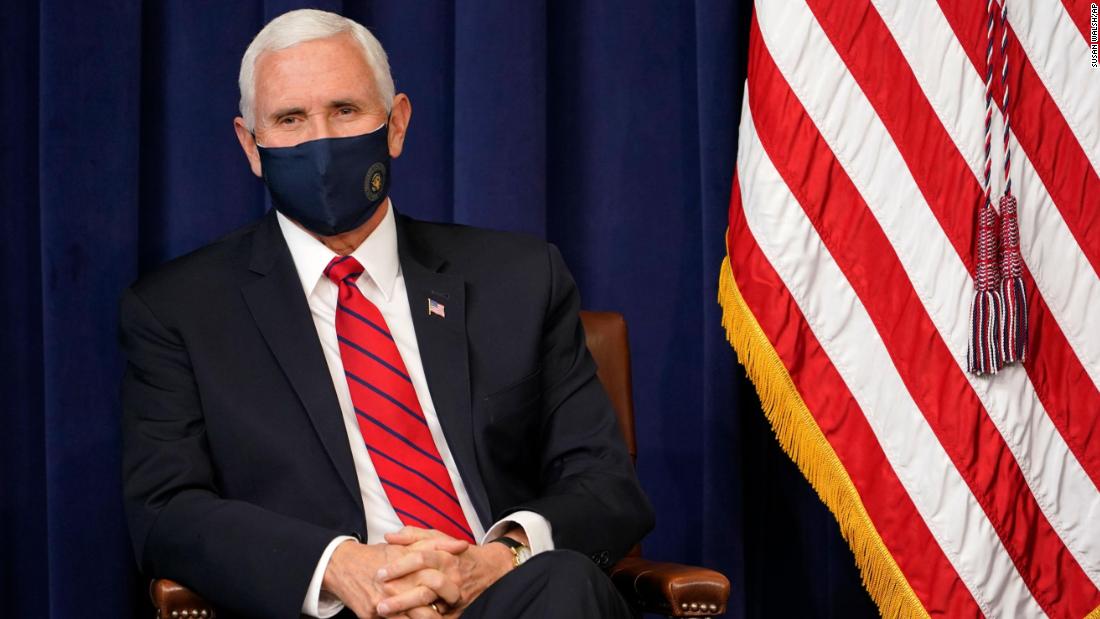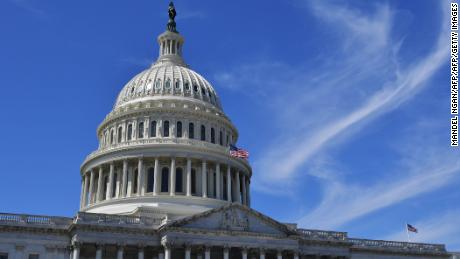Pence asks judge to reject Gohmert lawsuit asking the VP to interfere in the Electoral College count
Pence argues that the legal issues raised by Gohmert, along with a slate of Arizona Republicans, should be addressed to the House and Senate (if they should be raised at all).
Gohmert’s lawsuit is a last-gasp attempt by Republicans to persuade Pence to interfere in the declaration of President-elect Joe Biden’s victory and flip the election for President Donald Trump. The brief, filed with the Eastern District of Texas, does not say if Pence would entertain that possibility, but there is no public indication he will.
“Plaintiffs have presented this Court with an emergency motion raising a host of weighty legal issues about the manner in which the electoral votes for President are to be counted,” Pence’s filing states. “But these plaintiffs’ suit is not a proper vehicle for addressing those issues because plaintiffs have sued the wrong defendant.”
Pence later adds: “(A) suit to establish that the Vice President has discretion over the count, filed against the Vice President, is a walking legal contradiction.”
The lawsuit falsely claims the election was stolen by Democrats, citing unproven allegations of fraud that federal and state courts have rejected again and again. Gohmert and the Republicans argue that the Electoral Count Act unconstitutionally binds Pence to the Electoral College count certified by the states, saying that Pence has “exclusive authority and sole discretion” to count the states’ electoral votes.
“Under the Twelfth Amendment, Defendant Pence alone has the exclusive authority and sole discretion to open and permit the counting of the electoral votes for a given state, and where there are competing slates of electors, or where there is objection to any single slate of electors, to determine which electors’ votes, or whether none, shall be counted,” the suit argues.
Pence’s filing pointed out the irony of Gohmert’s argument. “Ironically, Representative Gohmert’s position, if adopted by the Court, would actually deprive him of his opportunity as a Member of the House under the Electoral Count Act to raise objections to the counting of electoral votes, and then to debate and vote on them.”
There have been no credible allegations of any issues with voting that would have impacted the election, as affirmed by dozens of state and federal courts, governors, state election officials and the departments of Homeland Security and Justice.
Both a House member and senator are required to mount an objection when Congress counts the votes. Republican Sen. Josh Hawley of Missouri said Wednesday he will object, which will force lawmakers in both the House and Senate to vote on whether to accept the results of Biden’s victory.
House General Counsel Doug Letter filed an amicus brief with the court on Thursday, asking for the Gohmert case to be dismissed, calling it a “radical departure from our constitutional procedures and consistent legislative practices.”
“This Court should dismiss the complaint and deny the extraordinary and unprecedented relief requested: a declaration that the Electoral Count Act is unconstitutional and an injunction that would interfere with the time-honored procedures of Congress for counting electoral votes. Plaintiffs lack standing; their claims are barred by laches; and their legal and constitutional claims—which this Court should not reach—lack merit,” Letter stated.
“At bottom, this litigation seeks to enlist the federal courts in a belated and meritless assault on longstanding constitutional processes for confirming the results of a national election for President,” the House attorney added.
Also Thursday, attorney Alan Kennedy, an elector for Biden and Vice President-elect Kamala Harris in Colorado, asked to join the lawsuit to oppose Gohmert.
“(N)either the Constitution nor Electoral Count Act offer any basis for claims by people who are not duly elected and certified presidential electors to replace duly elected and certified presidential electors solely because such non-electors were not elected, but would have liked to have been elected, resulting in their preferred candidates losing re-election,” Kennedy said in court papers. “Plaintiffs’ claims to the contrary find no support in the text of the cited constitutional provisions or the Electoral Count Act, and are contrary to the whole point of holding elections.”
This story has been updated with additional information.
CNN’s Jake Tapper and Kristin Wilson contributed to this report.
![]()






